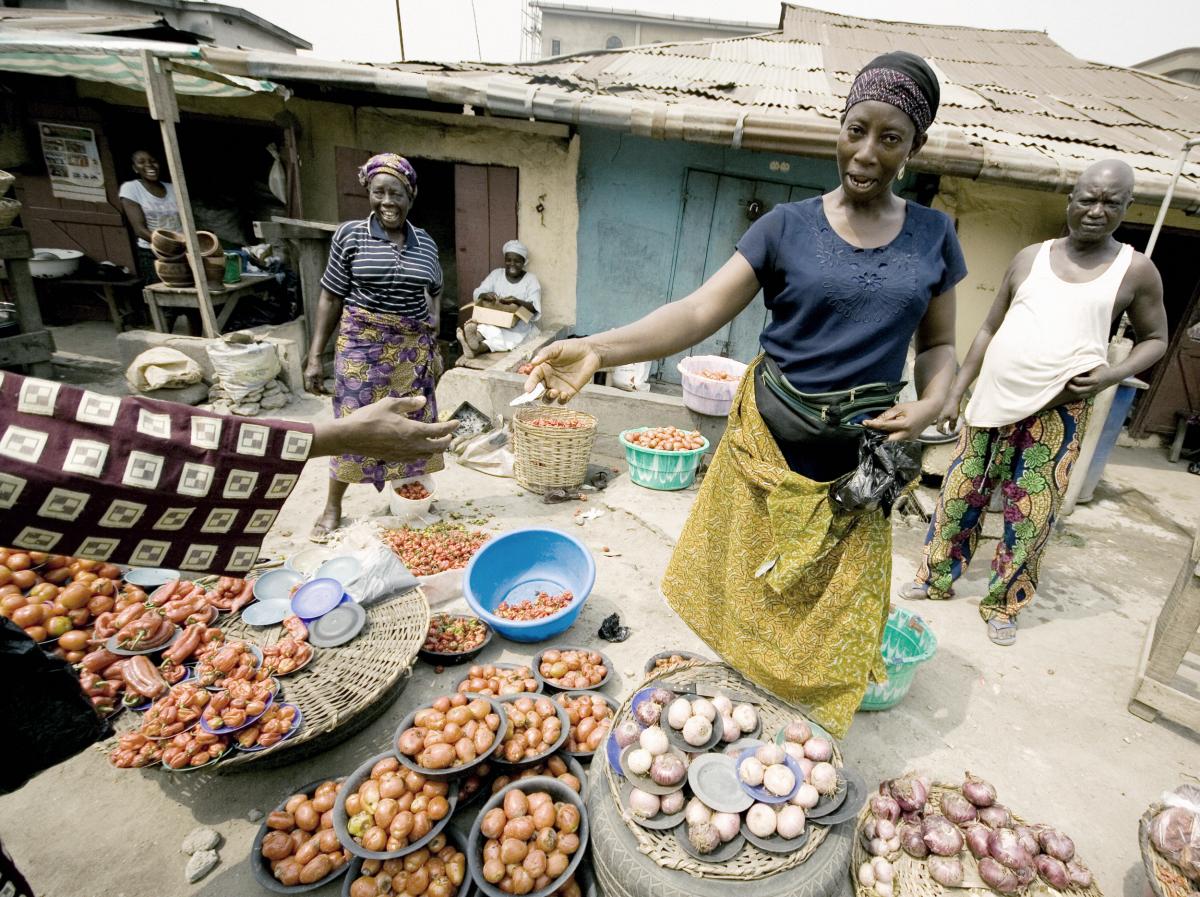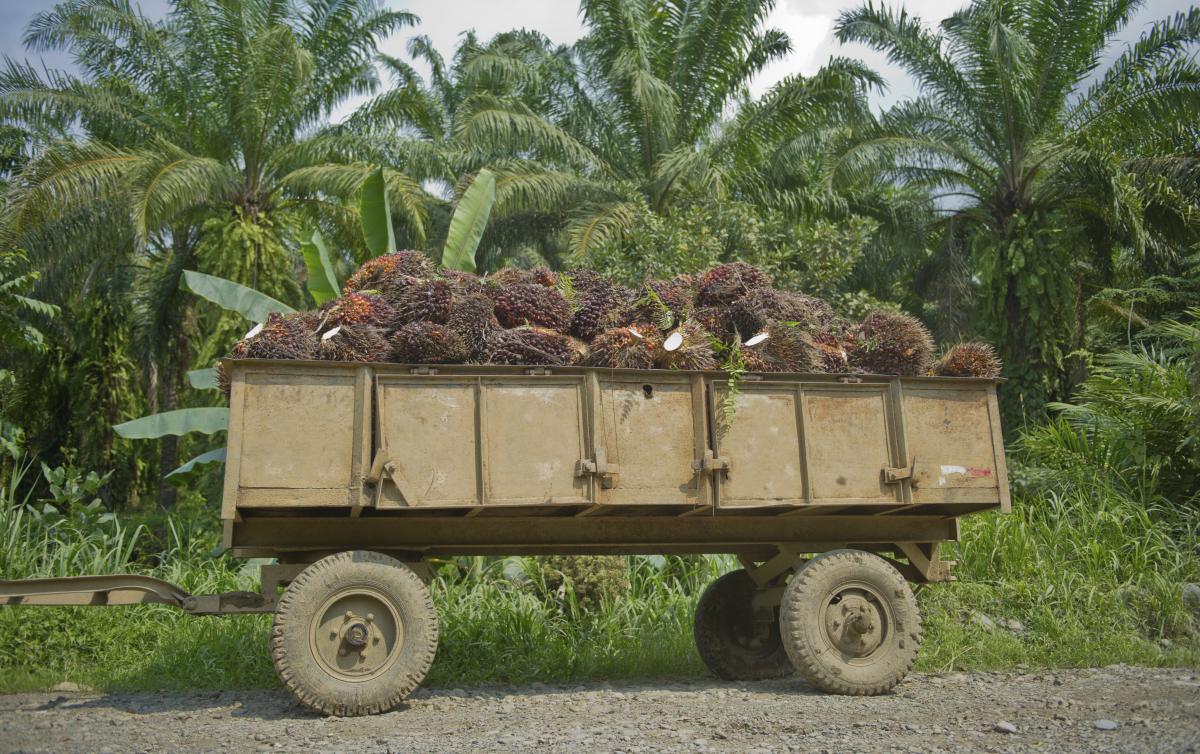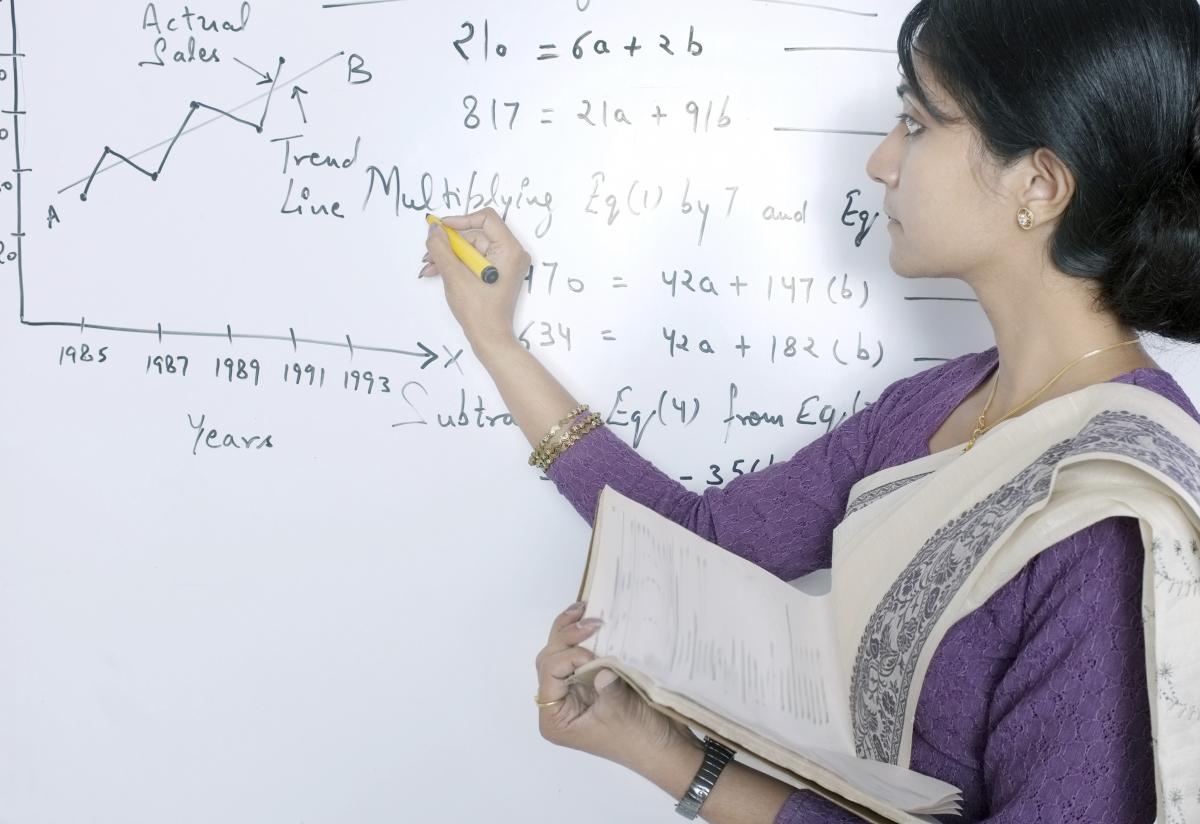Standard bearer for sustainability
Standard Chartered bank may be headquartered in London, but its business focuses on Africa, Asia and the Middle East. That gives it a unique perspective – and opportunity – when it comes to promoting sustainable economic growth.
As with any self-respecting banker, Mark Devadason is good with figures. In his case, they usually end with multiple zeros.
Here are just a few: 2.4 billion: the anticipated size of Africa’s population come 2050, more than double its current rate (of 1.1 billion); 870 million, the number of women expected to join the global workforce or set up a business in the decade up to 2020; 2.5 billion, the number of unbanked people in the world.
Standard Chartered Bank has a public pledge to be “here for good”. Ultimately, that means taking huge, abstract numbers like these and translating them into meaningful, on-the-ground change for individuals. Working out how to achieve this forms a central part of Devadason’s mandate as the bank’s global head of sustainability.
Step one is to work out where an international bank with Standard Chartered’s geographic focus in Africa, the Middle East and Asia can best contribute – and where it can’t.
It boasts all the kinds of responsible employment practices and charity projects that you’d expect of a global company with an operating income of $18.2bn. Almost all (97%) of its more than 90,000 employees received some form of training last year, for example. It’s a similar story with community investment: the bank has raised more than $63m since 2003 to help prevent avoidable blindness.
To determine where its banking expertise really comes into its own, however, Standard Chartered has conducted a series of nationwide “impact” studies. Working with pioneering impact measurement expert Professor Ethan Kapstein of Arizona State University and the McCain Institute for International Leadership, it has so far mapped its socio-economic footprint in Bangladesh, Indonesia, Ghana and sub-Saharan Africa (see box 1).
Sub-Saharan Africa: social and economic impacts
Standard Chartered calculates its direct and indirect support in Sub-Saharan Africa as the provision of:
• 1.9m jobs, equivalent to around 0.6% of the region’s total workforce.
• $10.7bn in economic contribution, equivalent to 1.2% of the region’s GDP.
• trade worth $7.2bn, equivalent to 1.2% of the region’s total international trade.
• $1.8bn of tax payments, equivalent to 1.1% of total tax receipts of governments in the region.
‘Banking on Africa’ report, 2014
Business facilitator
One obvious area where Standard Chartered is uniquely positioned to help is in “south-south trade”, this research suggests. By Devadason’s calculation, cross-border trade between emerging economies will account for up to two-fifths of world trade by 2030. The figure is less than half that (18%) now.
To maximise this opportunity, Standard Chartered has adapted an online transaction banking system developed initially for its large corporate customers. The web-based Straight2Bank platform enables small businesses and other organisations to complete international transactions at low costs.
In Kenya, meanwhile, the bank has tied up with mobile money provider M-Pesa to enable electronic payments to clients’ phone-based wallets. The charity Child Fund is among the first to adopt the service as a means of paying its in-country staff.
“It’s something that we are increasingly interested in because it helps us bank in areas where typically if we didn’t have the right branches we would be unable to do so,” Devadason says of the initiative.

Another area where Standard Chartered is playing to its strengths is in microfinance. Clearly there’s a huge need for credit among the very poor in emerging markets. But with a comparatively small presence on the high street (Standard Chartered has a mere 99 banks in India; the State Bank of India has more than 13,000), it has focused its efforts on serving microfinance providers instead.
“We can’t do [microfinance] ourselves, but we can support an industry that we feel is an important part of providing financial access,” says Devadason.
“Between 2005 and now, we’ve built a $1.5bn book serving almost 80 institutions in 18 different countries … By banking microfinanciers, our money gets to work through these customers.”
Standard setter
A third area where Devadason feels his employer is well placed to exert a constructive influence is in standard setting. In general, the banking industry in Africa, Asia and the Middle East has escaped the besmirching faced by their industry peers in the developed economies of the west.
Even so, if the region is to expand at the pace anticipated, it will need a robust, well-governed and transparent banking culture to underpin and support such growth.
“It is going to get increasingly hard not to set high standards,” argues Devadason, noting that businesses – and the banks that fund them – are bound up in global supply chains in which exacting environmental, social and governance (ESG) performance norms are expected.
“One of the benefits of international banks is to set standards across the world … We would like to be a force driving positive change, using the lessons of the west to say, ‘This is what world class sustainability standards looks like’,” he adds.
Standard Chartered isn’t short of examples. It boasts 20 in-house “position statements”, for instance. These spell out its investment criteria in potentially controversial industries, from gambling and palm oil through to tobacco and nuclear power. Add to that a raft of codes of conduct on issues such as bribery, money laundering and human rights, and it makes for an impressive rulebook.

From the off, Standard Chartered has sought to engage others in its norm-setting efforts. At present, for example, it is working with peers in the finance sector under the umbrella of the Banking Environment Initiative to develop sustainable letters of credit for commodities such as palm oil.
“The only way this gets sorted is if banks work together to create these new ideas,” Devadason says.
Engagement at a regional level is also a priority. Devadason recently participated in a training session organised by environmental charity WWF aimed at education local banks in south-east Asia on ESG norms. “It’s part of the process of engaging with our competitors to drive up standards,” he explains.
Not that it’s easy, especially from a short-term commercial point of view. Devadason insists that Standard Chartered is prepared to turn down business rather than contravene its sustainability principles. He cites the example of three clients that had exposure to shark fin production in their supply chain. Two agreed to address the issue; the third did not. Standard Chartered withdrew its services from the latter.
“Another difficulty is when local banks don’t have ESG standards to hold clients to account. It’s harder to have these conversations because the customer has a choice [of another bank],” Devadason says.
Financial educator
A final area where Standard Chartered believes it has a unique role to play is generating macro-economic growth through the provision of finance. Ostensibly, that’s what all banks do (or should do). Where a responsible bank can differentiate itself and add real social value is by financing those that are higher risk or, for some reason or other, don’t tick the usual boxes.
Small and medium-sized businesses – the “nerve centre of any economy”, as Devadason puts it – present a case in point. In 2013, Standard Chartered pledged to increase its SME lending in emerging markets by 45% over five years, reaching at least $30bn by 2018.
Power infrastructure is another, perhaps more controversial, area where finance is much needed. As part of the US government-backed Power Africa initiative, the bank has said it will plough $5bn into electricity generation projects between now and 2018.

A reliable and safe power network is key to driving economic development, but the controversy lies in Standard Chartered’s support for “big power”, to use Devadason’s term. That is, coal and other fossil fuels. The bank’s head of sustainability justifies the move by saying that “big power” is safer than the domestic use of kerosene for power (as is habitual in Africa and Asia). And neither does the bank’s investment in dirty power generation mean it’s not intending to invest in renewables as well.
Devadason adds one further line of defence: “Where we think it’s important to support coal and other carbon solutions is not because we like it, but because via our ESG standards we can guarantee that if there’s going to be a coal plant then it’s going to meet the highest standards of emissions controls.”
Standard Chartered’s definition of access to finance extends to accessing financial education. What’s remarkable here is that its commitment lies beyond its immediate zone of influence. Not with customers, not with employees, not with suppliers, but with those on the margins of the economy: namely, the financially illiterate.
For Devadason, helping people understand finance is critical to combatting poverty and driving economic growth. He says: “When you look at this whole issue of the world’s unbanked, it is poor people who have potential but don’t reveal that potential because they are either exposed to loan sharks, don’t understand how to borrow, or don’t understand how to responsibly manage households or how to set up businesses.”
To help turn that around, the company runs a series of financial literacy programmes for young people and for entrepreneurs. In respect of the latter, the bank has said it will expand its existing financial education programme to reach more than 5,000 micro and small businesses by 2018. At least one fifth of these will be owned by women.
Women feature highly in Standard Chartered’s outreach programmes. Not just financial education, but wider life skills too (see box, “Goal”). Devadason says he longs for the day when banks like Standard Chartered will be overwhelmed by demand from female owned and managed businesses.
That won’t happen overnight, he accepts. It will require a huge, grassroots effort to empower women and to remove the social, cultural and political factors that hold them back from realising a more central role in the economy.
“While no-one wants to ignore the boys, I think there’s a clear conclusion that’s you’ll get more bang for your buck [with women] because they will make more responsible choices. That’s just a fact,” Devadason says.
For many banks, supporting economic development is a worthy and usually philanthropic-focused goal. The difference with Standard Chartered is that its own business success is intimately tied up with economic progress in these developing-world markets.
For the past decade or more, this affiliation with emerging markets – where growth has been buoyant – has seen the bank riding high. By the same token, however, it has found itself worryingly exposed in the past few years when some of the global south’s fastest-growing economies (particularly China) have begun to slow. Falls in the price of oil and other key commodities have hit the bank hard too. Last year saw a £644m write-down in its Korean operations, plus job losses. Pre-tax profits tanked 25% to £3.4bn.
In the short term, the bank has said it will exit under-performing and non-strategic businesses. It is also planning a change at the top, including the appointment of a new chief executive. As for its sustainability strategy, Devadason insists the bank’s focus won’t be uprooted.
The same logic that sees the bank prosper when its emerging economy markets are doing well compels it to support those same economies when times are tougher. And by looking to bring those on the margins of the economy into the mainstream, the frequency and scope of tough times should ultimately reduce in the future.
The outcomes of such a policy requires years if not decades to come to fruition. With a century and a half already under its belt, Standard Chartered is in it for the long haul, Devadason says. Or, as he prefers to put it, it’s “here for good”.
Goal programme
Across the developing world, millions of adolescent girls are at risk of missing out on education, severely limiting their prospects and those – in time – of their children. In 2006, Standard Chartered established the Goal programme to empower adolescent girls from low-income communities with the skills they need to make informed life choices. The project combines sports with life skills, financial education and work force development. It has reached more than 86,000 girls to date. The bank aims to reach 500,000 girls globally by 2018. Early evidence points to the programme’s positive impacts. In Nigeria, for example, more than half of participating girls had written or edited a budget after taking part in Goal, compared with around one fifth before the programme.
Key stats: Standard Chartered Bank (2014)
- Headquarters: London
- Operating income: $18.2bn
- Profit before tax: $5.19bn
- Employees: more than 90,000
- Countries: 70
- Branches: more than 1,600+
- www.sc.com
Mark Devadason, group head of sustainability and regions, corporate affairs, Standard Chartered
Based in Hong Kong, Mark Devadason is currently in charge of the group’s overall sustainability agenda. He also has global responsibility for the in-country corporate affairs teams with responsibility for internal communications, media relations, government and regulatory relations, among other activities. Mark is also a member of the board of Standard Chartered Bank in Thailand.
During his 27-year career at Standard Chartered Bank, he has held roles in the company’s Wholesale Banking, Consumer Banking and Human Resources divisions. He was chief executive of Standard Chartered Bank in Thailand 2008-10 and Japan 2003-7.
UK-born Devadason graduated from the University of Bristol, UK, in 1985 in philosophy and economics. He has also completed several management programmes, including courses at INSEAD, Templeton and the London Business School.
banks ethical finance finance Standard Chartered
